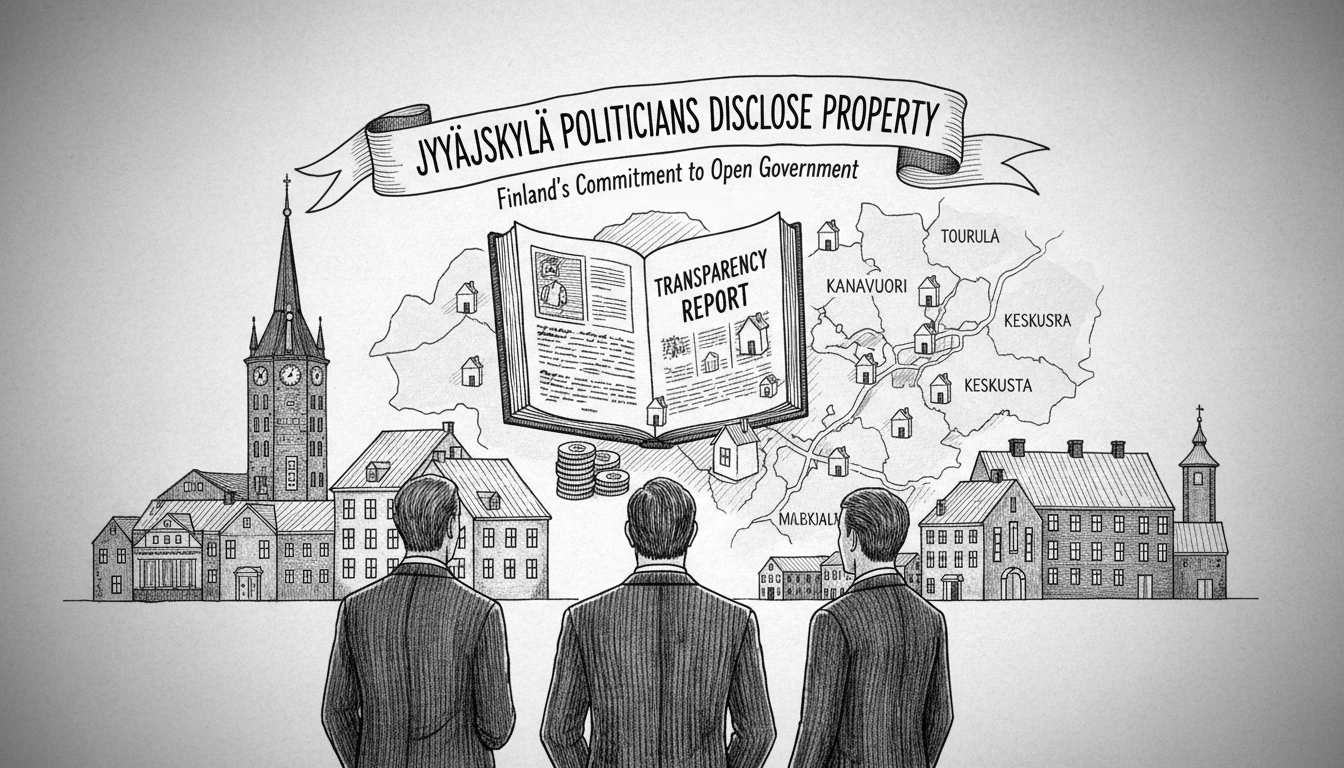Eight elected officials in Jyväskylä have declared substantial personal wealth in their latest transparency filings. The disclosures will be formally presented to the city board on Monday. This marks an important moment for government transparency in the Central Finland region.
None of Jyväskylä's top administrative officials reported significant assets under municipal law requirements. The city's leading administrators include the city manager, department heads, and chief administrative officer. These positions carry different disclosure rules than elected representatives.
The eight politicians reporting substantial assets come from across the political spectrum. They include city council members and committee representatives from the National Coalition Party, Social Democrats, Left Alliance, and Centre Party. Their declarations reveal diverse property investments throughout the city.
Multiple officials reported owning one or more investment properties. These real estate holdings appear in various Jyväskylä neighborhoods. Locations include Ailakinkatu, Tuulimyllyntie, Väinönkatu, and several other streets across the city. Some properties serve as residential rentals while others function as commercial spaces.
Finnish municipal law requires these disclosures to prevent conflicts of interest. The system aims to ensure that officials' personal finances don't influence their public decision-making. This is particularly important for politicians involved in zoning, construction, and environmental decisions.
Transparency advocates consider these disclosures vital for public trust. When citizens can see their representatives' financial interests, it creates accountability. The system helps ensure that planning decisions benefit the community rather than individual politicians.
The concentration of property investments among some officials raises questions about housing policy priorities. Several declaring politicians serve on committees dealing with construction and urban planning. Their personal real estate portfolios could theoretically influence their policy positions.
Jyväskylä's disclosure process follows Finland's broader transparency traditions. The Nordic country consistently ranks among the world's least corrupt nations. These regular financial disclosures represent one tool maintaining that reputation.
International observers might find Finland's approach noteworthy. The system demonstrates how mid-sized cities implement transparency measures. It shows that corruption prevention requires continuous effort at all government levels.
The declared assets will now become part of the public record. Citizens can examine whether their representatives' financial interests align with their public duties. This process repeats regularly as officials update their disclosures.

